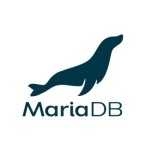There are three variations available within SQL Server, the first one being that you can migrate your SQL instances from an on-premises version to the cloud. Second, you have an option to modernize the SQL platform and move to managing instances on the cloud. Third, SQL Server has an offering called Azure SQL, where you can deploy Azure instances in a flexible manner, and it can automatically scale up or down, depending upon the requirements. There are specific features you can license, as per the CPU cores and transactions you deal with in your business. There are various models of the tool that are available.
Features like autoscaling, business continuity, and security are beneficial. The tool's compatibility with almost all of the enterprise-class applications is also beneficial for users.
The tool is secure in nature. The security portfolios are changing day by day, and new security bugs are being released. The tool responds to users' requirements to deal with bugs and security issues. I feel that the tool should offer more security features to be made available. The security packages to be followed by users should be consolidated and sent to customers every day or every week so that they can have the security features updated. If security packages are available in a consolidated manner every month, it will be beneficial. I think there are certain areas of concern regarding the backup of the product that I have heard from my company's engineers. Sometimes, the tool doesn't support all the native features, and because of this, our company has to customize it to meet our requirements, which is a challenging process for our company's engineers. The tool has to be user-friendly- in terms of supporting the backup features and adapting to various backup environments.
I have been using SQL Server for 5 years.
It is a very stable solution. Hundreds and thousands of customers have adopted SQL Server since it is a very stable solution.
Stability-wise, I rate the solution a nine out of ten.
Scalability-wise, I rate the solution a nine out of ten.
My company deals with organizations where the solution is used, with between 200 and 7,000 users.
The solution's technical support is available twenty-four hours, seven days a week, with the specific SLAs associated with the product. Apart from Microsoft, there are hundreds of solution integrators and managed service providers available worldwide who provide support for SQL servers.
The product's initial setup phase is very straightforward and nothing complex. Anybody who has a basic knowledge of SQL and Azure should be able to deploy the product.
SQL Server has a clear set of procedures to help users deploy the product. Initially, to identify your sizing or capacity requirements, after which you pick up the right setup from the cloud and then configure it with the right level of storage and the right level of CPU and memory before choosing the version of SQL you want to deploy, post which you will be ready to use the tool.
You can opt for a pay-as-you-go model, which allows you to pay as per your usage, which is a little expensive. You also have the option to purchase for a period of a year or three, which comes with discounted pricing. Depending upon your usage, you can use the pay-as-you-go model for a short period of time. For longer projects, we can opt for one-year or a three-year license.
Speaking about a project where SQL Server was essential in archiving our company's objectives, I feel that customers generally like to optimize their licenses while making sure they get the right level of operational excellence out of it. When you run the tool on an on-premises version, you are dependent upon operational resources or human resources to manage it. When the tool is in the cloud, it is managed by Azure, where you can optimize or effectively use your resources, which can provide you with cost advantage or cost optimization. As the tool is flexible in nature, you don't have to monitor it all the time for performance and capacity issues. The tool automatically scales and provides you with the required level of scalability, and it also has built-in DR and business continuity features. Even in the case of a disaster, it automatically moves to a DR location and provides you with the right level of business continuity and availability.
The product has built-in scalability features. Depending upon the number of transactions or usage, it automatically scales itself. You can also define specific parameters for how the tool needs to scale or how to respond to the requirements of the users. The tool has a good amount of scalability features.
Azure provides funding for doing a PoC, so if you are a little apprehensive about using it, then you can reach out to a local Azure partner, who will be able to help you with providing the funding from Azure. Azure's funding part is valid for a period of two to three weeks, so you can actually deploy it and play around to ensure that you are comfortable with what you are doing. Once you are satisfied with the results of the tool, you can go ahead and migrate or modernize your databases. I suggest others use the funding from Azure so that you can get a touch and feel for the product.
SQL Server comes under the category of enterprise tools. Most enterprise tools have connectivity available. If there is no connectivity available in the enterprise tools you use, you can develop APIs to integrate with other tools.
The benefits attached to the solution revolve around the fact that it offers scalability and reliability. The tool also helps with fault tolerance while offering business continuity features. The tool offers its users a fully secure environment. In banking, federal government, or insurance firms, I feel that the tool ensures that its users are fully secured, and you can apply whatever regulatory governance you want to apply to the tool.
I rate the tool a nine out of ten.





















